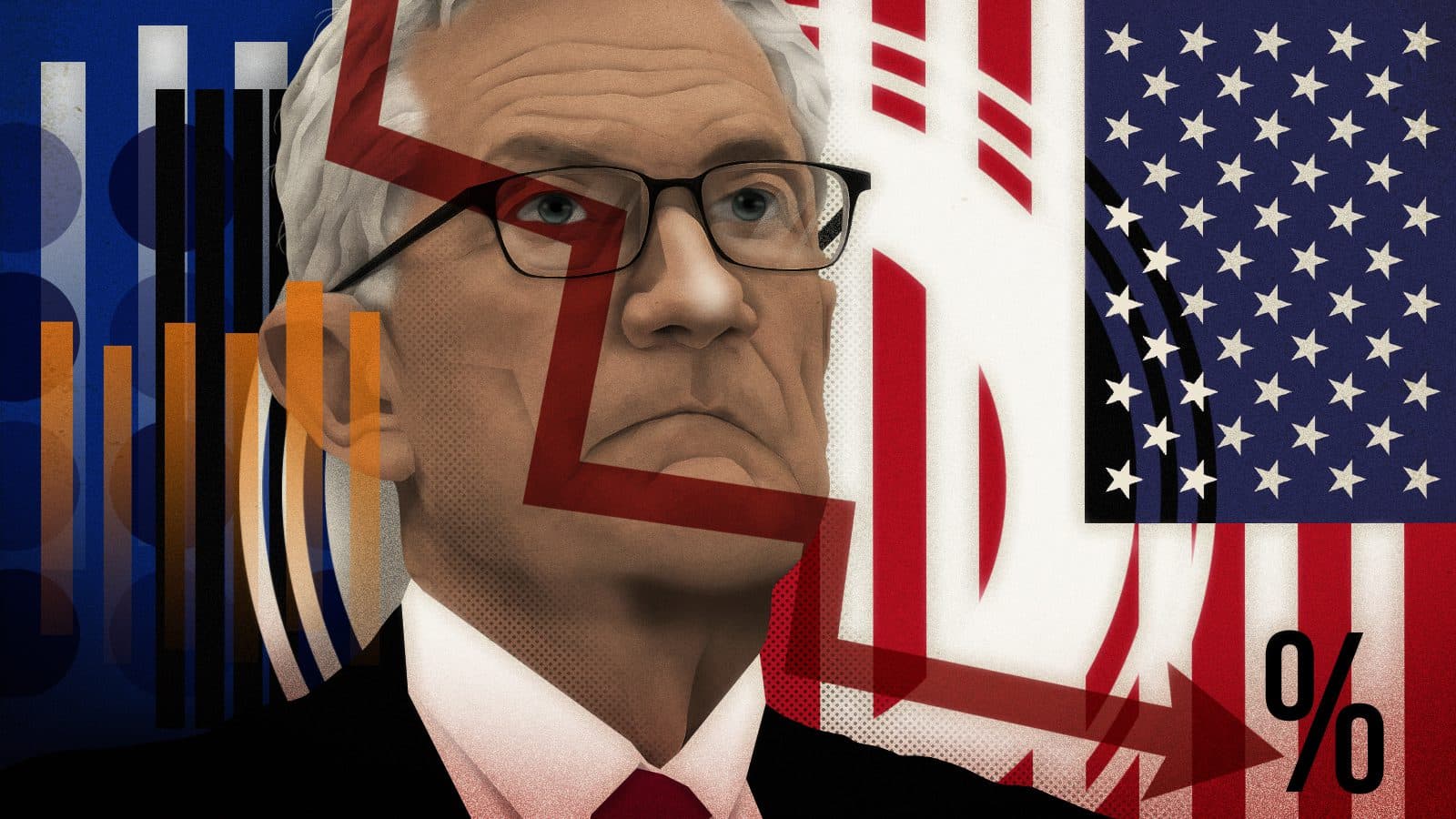Survey: Tech Stocks and Cryptocurrencies Cudgeled as Fed Reduces Balance Sheet
The Federal Reserve’s plan is aimed at tightening credit and cooling down inflation, but what’s the collateral damage?

Federal Reserve Chair Jerome Powell | Blockworks exclusive art by Axel Rangel
- Nearly half of survey respondents think tech stocks and cryptos remain the most vulnerable to the Fed’s quantitative tightening
- About two-thirds of survey respondents say the four-decade bull run in Treasurys has come to an end
As the US Federal Reserve has begun reducing the holdings on its nearly $9 trillion balance sheet, tech stocks and cryptocurrencies will be hit hard, according to an MLIV Pulse survey reported by Bloomberg.
About 47% of respondents indicated tech stocks and cryptos are the most vulnerable to quantitative tightening, while only 7% picked mortgage-backed securities — which investors consider less vulnerable to the Fed’s new course of action.
The survey, running May 31 through June 3, included 687 responses — ranging from retail investors to market strategists.
The survey found traders active in the market during the 2008 financial crisis are concerned with the impact of the Fed’s balance sheet drawdown on junk bonds, and 72% are more likely to think the four-decade bull run in Treasurys is over — whereas new traders are focused on its impact on tech stocks and cryptos, and only 55% believe Treasurys are headed for a bear.
But Jack Farley, macro analyst and host of Blockworks’ Forward Guidance podcast, isn’t convinced quantitative tightening is bad news for crypto.
“I don’t think history supports the view that reduction of the Fed’s balance sheet is necessarily bad for crypto,” Farley told Blockworks in April. “The last (and only) instance of quantitative tightening by the Fed began in October 2017, and bitcoin went up 340% from then until its peak in December 2017.”
About 61% of respondents said the level at which the terminal fed funds rate peaks is more important than the amount by which the balance sheet shrinks, the survey also found.
In March, the Fed raised interest rates a quarter percentage point and said more rate hikes may happen in the near future. The American Bankers Association’s Economic Advisory Committee believed the Fed’s current rate hike agenda can help curb inflation from above 8% to near the Fed’s objective of 2% over this year and next.
Get the news in your inbox. Explore Blockworks newsletters:
- The Breakdown: Decoding crypto and the markets. Daily.
- 0xResearch: Alpha in your inbox. Think like an analyst.






